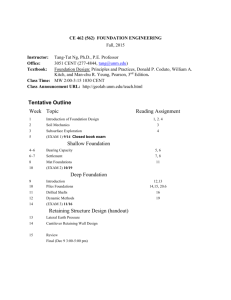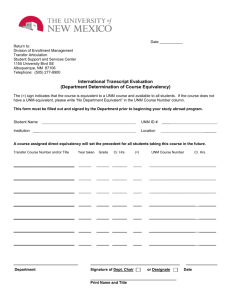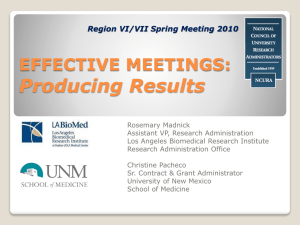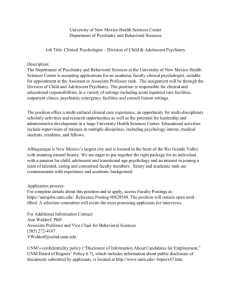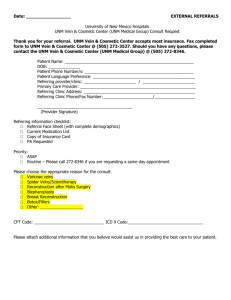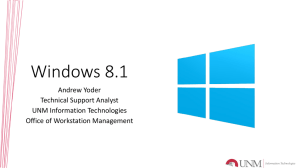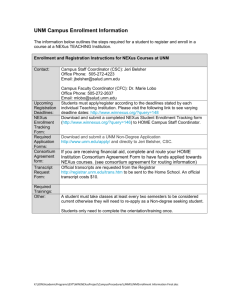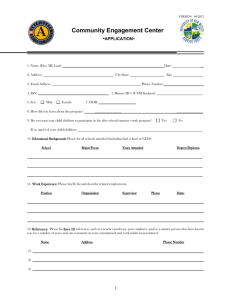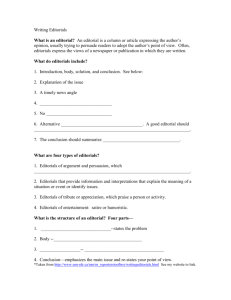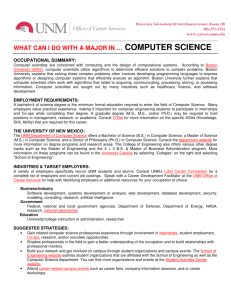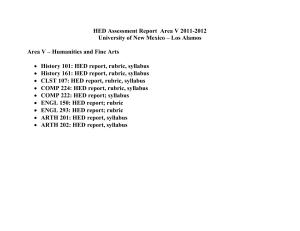Syllabus - Tunay Oguz
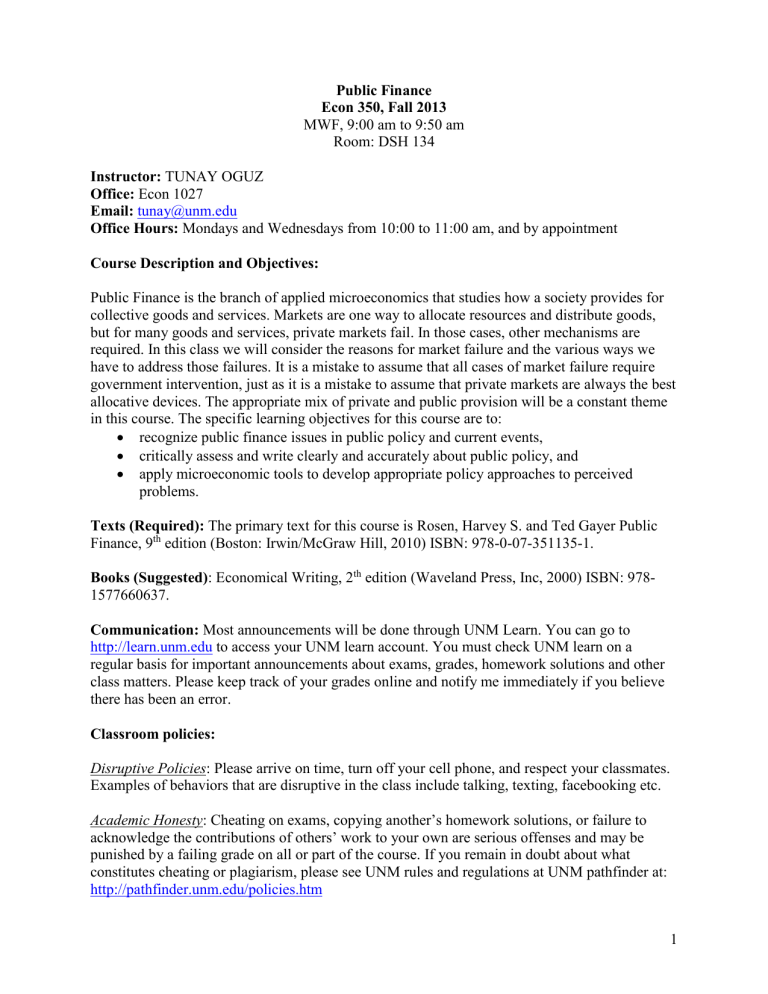
Public Finance
Econ 350, Fall 2013
MWF, 9:00 am to 9:50 am
Room: DSH 134
Instructor: TUNAY OGUZ
Office: Econ 1027
Email: tunay@unm.edu
Office Hours: Mondays and Wednesdays from 10:00 to 11:00 am, and by appointment
Course Description and Objectives:
Public Finance is the branch of applied microeconomics that studies how a society provides for collective goods and services. Markets are one way to allocate resources and distribute goods, but for many goods and services, private markets fail. In those cases, other mechanisms are required. In this class we will consider the reasons for market failure and the various ways we have to address those failures. It is a mistake to assume that all cases of market failure require government intervention, just as it is a mistake to assume that private markets are always the best allocative devices. The appropriate mix of private and public provision will be a constant theme in this course. The specific learning objectives for this course are to:
recognize public finance issues in public policy and current events,
critically assess and write clearly and accurately about public policy, and
apply microeconomic tools to develop appropriate policy approaches to perceived problems.
Texts (Required): The primary text for this course is Rosen, Harvey S. and Ted Gayer Public
Finance, 9 th
edition (Boston: Irwin/McGraw Hill, 2010) ISBN: 978-0-07-351135-1.
Books (Suggested) : Economical Writing, 2 th
edition (Waveland Press, Inc, 2000) ISBN: 978-
1577660637.
Communication: Most announcements will be done through UNM Learn. You can go to http://learn.unm.edu
to access your UNM learn account. You must check UNM learn on a regular basis for important announcements about exams, grades, homework solutions and other class matters. Please keep track of your grades online and notify me immediately if you believe there has been an error.
Classroom policies:
Disruptive Policies : Please arrive on time, turn off your cell phone, and respect your classmates.
Examples of behaviors that are disruptive in the class include talking, texting, facebooking etc.
Academic Honesty : Cheating on exams, copying another’s homework solutions, or failure to acknowledge the contributions of others’ work to your own are serious offenses and may be punished by a failing grade on all or part of the course. If you remain in doubt about what constitutes cheating or plagiarism, please see UNM rules and regulations at UNM pathfinder at: http://pathfinder.unm.edu/policies.htm
1
Accessibility Services: If you are a qualified student with a disability and need appropriate academic adjustments, please contact Accessibility Services (277-3506) as soon as possible to ensure your needs are met in a timely manner.
Grading Components:
Homework (4 homework): 30%
Editorials (3 editorials): 30%
Exams (2 exams): 30%
In class activities: 10 %
1. Homework (30 percent of the final grade): There will be 4 homework assignments and will be distributed one week prior to the due date. Homework will consist of problem solving and short essays. I will randomly select two questions from the homework to grade. I strongly suggest you to put a good effort on solving each homework question since the exam questions will be drawn from those questions.
2. Editorials (30 percent of the final grade): This course will provide you with tools that are useful in analyzing and forming a considered and rigorously supported opinion about a wide variety of public policies. Over the course of the semester you will be required to write three editorials (double spaced, 1 inch margins and two pages). I will provide you with a rubric and more detailed instructions, but each editorial must make ONE clear claim and support that claim with solid arguments. Examples of policy areas (Health care reform, Optimal obesity policy,
Charter schools, Policies for the education of women in developing countries, No Child Left
Behind etc)
Editorials must be submitted to me via email in one of the following formats: .doc, .docx, .rtf, or
.pdf. If you do not use Microsoft Word, convert your file to one of these formats before sending it to me. You must submit the first editorial on September 27 th
, the second one on October 25 th and the third one on November 27 th
. Each editorial will account 10 percent of your total grade.
3. Exams (30 percent of the final grade): There will be two in class exams during the semester
(see schedule for exam dates). Exam questions will be drawn from homework questions, and will last 50 minutes. Each exam will account 15 percent of your total grade. I recommend that you not simply memorize the lecture notes, textbook chapters, and homework solutions. You will learn the course material only by applying, analyzing and synthesizing the course material.
Make-up Exam Policy: Make up exam is available to students having a valid excuse for missing the regular exam. The excuse must be supported with official written documentation. You must contact with me no later than the day of the regular exam to arrange a make up exam.
4. In-Class Activities (10% of the total grade): I will provide several unannounced in class activities.
You must be in class to receive those points.
2
11
12
13
14
15
9
10
Preliminary Course Schedule:
Please read the assigned chapters before each class. This schedule may be modified if necessary.
In particular, additional readings will be added. Any modification will be announced in the class and on UNM learn.
Week Date
1 August 19-23
5
6
7
8
2
3
4
August 26-30
Topic
Introduction
Tools and Positive Analysis
September 2
September 4-6
September 9-13
Labor Day -No Class
Tools and Normative Analysis
Tools and Normative Analysis
Public Goods
September 16-20
September 23-27
Public Goods
Externalities
September 30- October 4 Externalities
October 7
October 9
October 11
Review
Exam 1
Fall break- No class
Reading
Chapter 1
Chapter 2
Chapter 3
Chapter 4
Chapter 4
Chapter 5
Chapter 5
Due Dates/
Exam Dates
HW 1
Editorial 1
HW2
Exam 1
16
17
October 14-18
October 21-25
November 11-15
November 18-20
November 22
November 25-27
November 29
Education
Cost Benefit Analysis
October 28-November 1 Cost Benefit Analysis
November 4-8 The Health Care Market
The Health Care Market
Income Redistribution :conceptual issues
No class
Framework for Tax Analysis
Thanksgiving-No Class
December 2-4
December 6
December 9-13
Framework for Tax Analysis
Review
Final Examination Period
Chapter 7
Chapter 8
Chapter 8
Chapter 9,10
Chapter 9,10
Chapter 12,13
Chapter 14-16
Chapter 14-16
Editorial 2
HW 3
Editorial 3
HW4
Exam 2
3
Grading Scale:
Your final numerical average will be calculated based on your performance on homework (30%), two exams (30%), editorials (30%), and your total grade from in-class activities (10%). Your overall grade for the course will be based on the following scale:
Percent
93 – 100%
90 – 92.9%
87 – 89.9%
83 – 86.9%
80 – 82.9%
77 – 79.9%
70 – 76.9%
67 – 69.9%
60 – 66.9%
Grade
A
A-
B+
B
B-
C+
C
C-
D (Less than 60% will receive a “F”)
Important Dates from Registrar's Office (Fall 2013)
Labor Day, Holiday
Last day to change grading options
September 2, Monday
September 13, Friday
Last day to drop a course without a grade September 6, Friday
Last day to withdraw without approval of college dean
Thanksgiving, Holiday
November 8, Friday
November 28-29, Thursday- Sunday
Last day to withdraw from a course with approval of college dean December 6, Friday
4
